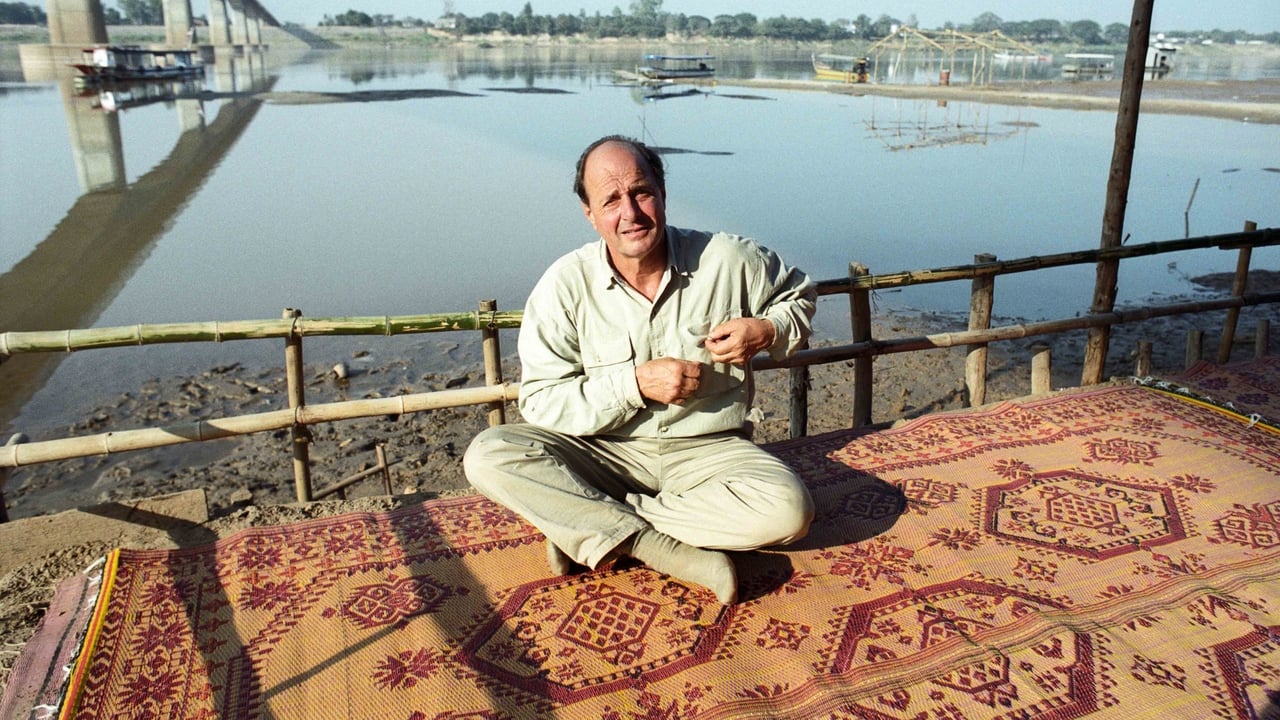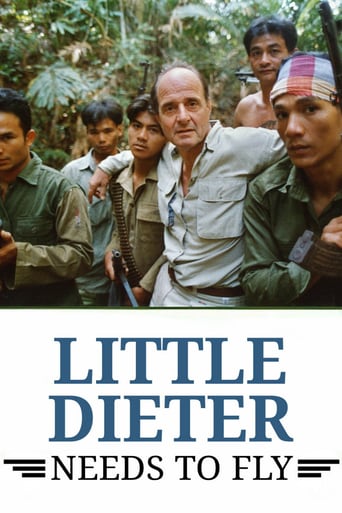

Well Deserved Praise
... View MoreBoring, over-political, tech fuzed mess
... View MoreBeautiful, moving film.
... View MoreIt's fun, it's light, [but] it has a hard time when its tries to get heavy.
... View MoreLittle Dieter Needs to Fly (1997) **** (out of 4) Powerful documentary from Werner Herzog about the escape of Dieter Dengler from a POW camp was the inspiration for Rescue Dawn. It's very interesting seeing a director make a film off of a documentary he made because you get to see the different ways that both genres can be done by the same mind. I would say this film is a lot more powerful and I say that because it's rather hypnotizing seeing Dieter tell his stories of torture and escape. Dieter goes back to some of the real locations to tell what happened to him and it's quite haunting hearing him say that it's a mystery how he survived all that he went through. Herzog brings his normal flair to the picture by not really doing anything except letting this man tell his story. The stories are at times shocking and at other times inspirational but the film ends with one of the most beautiful scenes from any Herzog film.
... View MoreDieter Dengler always wanted to fly planes it was his childhood dream and an adult reality. This film spends time with him and traces his history from birth in Germany shortly before the war, his journey to America and specifically his time in Vietnam. Dengler returns to the jungle where his plane came down in 1966 and recalls his time as a prisoner of the Vietcong before his eventual escape.Although I have not always enjoyed every Herzog film I have seen but I have always found them interesting for one reason or another and thus I found myself watching this knowing nothing more than the fact that it was a Herzog film. Opening with the background to Dengler, the film soon moves into the recreation of his experiences in Vietnam and it is here that the background pays off. On one hand , the story is undeniably gripping and horrifying but of greater interest was the man himself and specifically how does he manage to deal with the things he has lived through? Herzog sits closely with Dengler and lets him talk, exposing his character as much as possible.Other reviewers have said that Herzog is hardly in the film but I agree with Terry Nienhius when he points out that Herzog is actually all over the film. He sits back and lets us focus on the subject but his work is all over the music and use of footage it is really well done and produces a reflective mood that compliments the story and character. A good film but not one that can easily watched while doing something else as it requires attention. It is powerful and harrowing but yet confusing it its character complexity. It doesn't have all the answers of course but it is fascinating as a study of "Little Dieter".
... View MoreI had the opportunity to see this last evening at a local film festival. Herzog introduced the film and did an hour long Q&A afterward.This is a brilliantly done "documentary"; Herzog explained afterward that he does not consider his films to be true documentary since facts sometimes camouflage the truth. Instead he scripts some scenes and ad-libs some to introduce a new element that may have been missed if he followed the original story outline.Little Dieter, unlike Timothy Treadwell, is a real person that you fall in love with; you cheer for him, you feel the anguish that he feels. You admire the sense of humor and joy for life that he exhibited here 30 years after he was taken into captivity by the Viet Cong. You are disappointed to hear afterward that Dieter passed on not too long ago.As in most Herzog films, the imagery is breathtakingly beautiful with a wonderful choice of background music. Especially a scene of battle taken from archives of the Viet Nam war but fitting the story line of Dieter.The core of the film has Dieter return to the hellish jungle where he was a POW and he re-enacts his journey with some locals. Harrowing for us to watch, I can't imagine what he felt as he was bound again.One of the better films to depict and discuss the nightmare of the Viet Nam war. It should serve as a lesson to us all.
... View MoreI consider this a breathtaking but deceptive film because it seems so simple and straightforward: a Vietnam survivor tells his harrowing tale and some of the story is reenacted on location. Reviewers sometimes even claim that Herzog's presence in the film is minimal, but how wrong they are. We know that all documentaries are "mediated" to some extent and this one has Herzog's subtle hand all over it, most notably in the stunning music, the unbelievably expert selection of archival footage, and the management of cascading images. The evocative power of this film is astounding, starting with its title, the opening title card from the book of "Revelation," and the initial voice-over. This is a movie that one can watch repeatedly with increasing wonder, not a simple commodity that is gulped down with one's favorite beverage on the way to the evening news. This is one of those movies that can resonate with you for a lifetime.
... View More